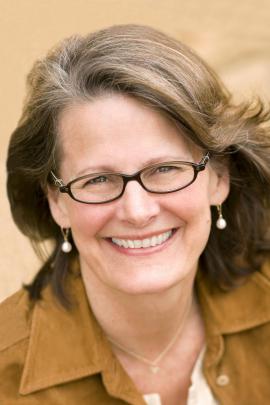Student Affairs
Miriam Aaron Roland Volunteer Service Prize
The Miriam Aaron Roland Volunteer Service Prize recognizes "Stanford faculty who engage and involve students in integrating academic scholarship with significant and meaningful volunteer service to society." Established through the generosity of Miriam Aaron Roland '51 (International Relations) of Montreal, Canada, as an endowment at the Haas Center, the Roland prize is unique at Stanford for its focus on the significant role that public service by faculty can play in higher education, benefiting the students, communities and the faculty themselves.
The prize includes a cash award, and is traditionally presented at the annual Community Partnerships Award Luncheon, co-hosted by the University Office of Public Affairs, and the Haas Center. In keeping with the Haas Center's own inclusive definition of public service, the Roland Prize is awarded to faculty doing exemplary work at the community level, in nonprofits and NGOs, and/or in government service or philanthropy-either domestically or internationally.
Nominations
A nominee must be a full-time member of the Academic Council, senior lecturer, Medical School line faculty member or clinician educator; and demonstrate a personal commitment to service and a record of involving students in service.
For more information, please contact Luke Terra.

2015 Awardee
Elizabeth A. "Liz" Hadly, a biology professor and senior associate vice provost for undergraduate education, was awarded the 2015 Miriam Aaron Roland Volunteer Service Prize for integrating research, teaching and outreach, and for her commitment to communicating science in ways that educate and inspire people to act.
Hadly also is the Paul S. and Billie Achilles Chair of Environmental Biology and a senior fellow at the Stanford Woods Institute for the Environment.
Hadly has spent more than 25 years studying environmental change across the globe. She oversees the Hadly Lab at Stanford and conducts groundbreaking research and teaching on how living and fossil animals can reveal human impacts on evolutionary and ecological systems. Her courses immerse students in life-changing experiences – from excavating caves in California and tracking bats in Costa Rica to trapping animals in India.
In 2012, Hadly coauthored a report in Nature claiming that Earth faced a "planetary-scale tipping point" because of human-caused climate disruptions, species extinctions, ecosystem loss, pollution and population growth. California Gov. Jerry Brown read the report and asked the authors to translate the science into a format he could use in political circles – a consensus statement.
The 16 coauthors agreed and produced Scientific Consensus on Maintaining Humanity's Life Support Systems in the 21st Century: Information to Policy Makers, which calls for policymakers and the public to take immediate action on climate disruption, disease, pollution, extinction, habitat loss, and human overpopulation and consumption. Brown has handed out the consensus statement to dozens of politicians, including President Barack Obama and Chinese Secretry General Xi Jinping.
Hadly has won praise for her role as a dedicated mentor committed to helping next-generation scientists succeed. She was among leading scientists chosen to give one of the 2014 Howard Hughes Medical Institute's Holiday Lectures on Science, which are designed to inspire high school teachers and students, and infuse cutting-edge teaching biological research into curricula worldwide. Her topic was "Humans, Biodiversity and Habitat Loss."
Hadly first learned the importance of translating science for the general public while working as a paleoecologist at Yellowstone National Park, after earning a bachelor's degree in anthropology. Answering basic questions from tourists gave her many opportunities to discuss larger scientific and environmental issues.
She has shared her expertise with Stanford alumni by leading travel-study trips abroad to the top of Mount Kilimanjaro, the savannahs of Kenya and the Patagonian steppe in Argentina. She will guide an alumni trip to East Africa this summer and another to Mongolia in the summer of 2016.
Hadly has authored and co-authored more than 100 scientific studies, many of which have been reported in a wide variety of newspapers and magazines, including the New York Times, Sierra magazine and The Economist. She communicates her science to the public through public lectures, blogs and other social media. Her first book is End Game? Tipping Point for Planet Earth, which she co-authored with her husband, Anthony Barnosky, an integrative biology professor at the University of California, Berkeley.


